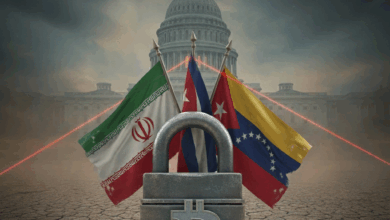Capital Moves East: Dubai, Japan, and Hong Kong Dominate Tokenized Finance

Asia is rapidly emerging as a global leader in asset tokenization, attracting institutional capital and shifting financial momentum away from Western markets.
With countries like Japan, Hong Kong, and the United Arab Emirates laying the groundwork for regulated digital asset ecosystems, global investors are increasingly turning to the East for innovation and opportunity.
According to Maarten Henskens, head of protocol growth at Startale Group, this shift is not just about following capital, it’s about participating in the next generation of financial infrastructure.
“Western institutions are now expanding into the Asia-Pacific region to be part of this transformation,” he said.
Japan and Hong Kong: Different Strategies, Shared Vision
Japan and Hong Kong are leading the charge, though with distinct approaches.
Japan has taken a cautious yet comprehensive route, enacting legislation that supports long-term growth and institutional confidence. Through frameworks like the Payment Services Act (PSA), the country permits trusted stablecoins to maintain reserves in low-risk government instruments, a model praised for balancing innovation with financial prudence.
Major players such as Mitsubishi UFJ Financial Group (MUFG) have also advanced tokenization through infrastructure that supports security token issuance, signaling growing maturity in Japan’s digital asset ecosystem.
In contrast, Hong Kong is accelerating innovation with a faster, more experimental approach. The introduction of the Ensemble Sandbox offers a regulatory testing ground for tokenization projects, inviting both local and international firms to experiment within a guided framework. “While Japan is building a deep foundation, Hong Kong is emphasizing agility,” Henskens noted.
Tokenized Bonds, ETFs, and Real Estate Attract Traditional Investors
Asia’s tokenization momentum is fueled by the rise of digital bonds, tokenized ETFs, and real-world assets (RWAs). In Japan, tokenized real estate products have opened traditionally exclusive markets to retail investors, even outpacing conventional J-REITs in accessibility.
Tokenization not only enhances transparency and reduces administrative overhead for fund managers but also fosters direct engagement with end-users. This efficiency, Henskens argues, is making tokenized products increasingly attractive to traditional investors wary of entering the broader crypto space.
Still, the next big challenge lies in achieving cross-border interoperability. Seamless and compliant asset transfers across jurisdictions will be crucial for scaling tokenized finance on a global level—something Asian regulators are already beginning to address.
Dubai Joins Asia’s Tokenization Vanguard
Beyond East Asia, Dubai is asserting itself as a key player in digital asset innovation. The city’s Virtual Asset Regulatory Authority (VARA) recently introduced updated rules for tokenized real-world assets, including real estate.
In a landmark initiative, the Dubai Land Department has successfully sold two tokenized apartments to buyers from over 35 countries. Remarkably, 70% of purchasers were first-time property investors in the UAE, highlighting the appeal of blockchain-enabled ownership models.
Moreover, the regulatory clarity and strong implementation efforts across the UAE, particularly through entities like ADGM (Abu Dhabi Global Market) and VARA (Virtual Assets Regulatory Authority), are truly impressive.
These frameworks not only attract global players but also foster trust in the digital asset ecosystem. For instance, VARA recently released Version 2.0 of its Compliance and Risk Management Rulebook, setting a new benchmark for proactive, risk-based AML (Anti-Money Laundering) practices. The update mandates quarterly risk assessments for all Virtual Asset Service Providers (VASPs) and expands compliance requirements to include emerging technologies like AI and anti-money laundering automation tools.
This aligns Dubai’s virtual asset regulations with global standards, ensuring that innovation does not come at the expense of financial integrity.
Meanwhile, ADGM continues to lead with its Digital Asset Framework, offering a comprehensive, principles-based regime that allows tokenized assets, crypto exchanges, and custodians to operate with clarity and confidence. Together, these efforts highlight the UAE’s commitment to becoming a secure and future-ready hub for digital finance.
Such developments are positioning Dubai as a regional leader in tokenized finance, complementing the broader shift toward regulated digital asset adoption across Asia.
To sum up, from Tokyo to Dubai, Asia is building the regulatory rails for a tokenized financial future. Whether through careful regulatory frameworks or agile sandbox environments, the region is offering global investors something the West has struggled to deliver: clarity, opportunity, and scale.





